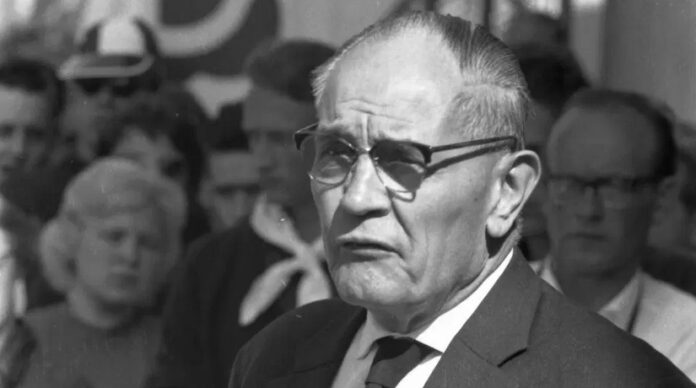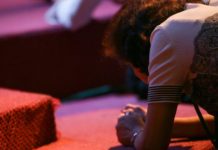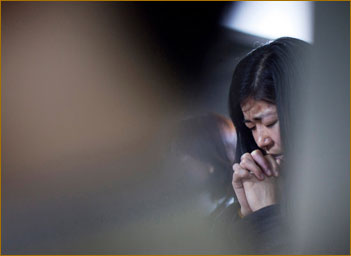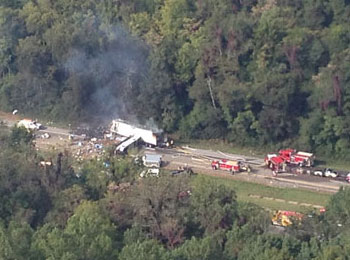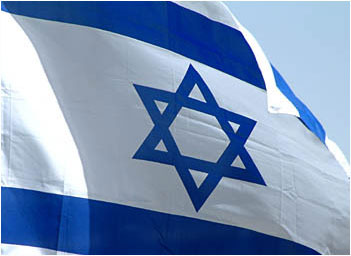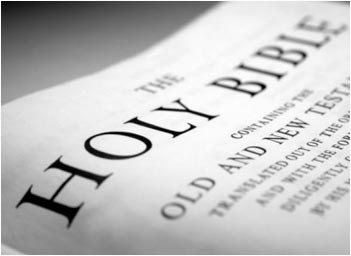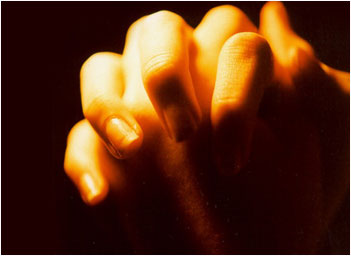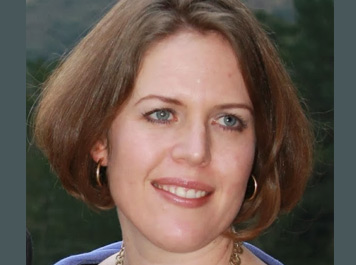By Alan Austin
THE striking parallels between Germany in the 1930s and the United States today keep piling up. In mid-January a movement called Faithful America started a campaign to mobilize Christians in opposition to presidential candidate Donald Trump. This initiative by a group of American Catholics and their ecumenical allies is a direct response to prominent Catholic bishops who publicly support the former president.
This replicates the Pastors Emergency League (PEL) formed in September 1933 by Martin Niemöller and his clerical colleagues in Germany’s churches. The PEL opposed Protestant and Catholic leaders who were proclaiming that God sent Adolf Hitler to save Germany.
Germany then, America now
The scenarios are remarkably similar. In both pre-war Germany and the USA in the 2020s, large swathes of the population were in the thrall of a strong leader who blamed social problems on migrants and embraced easily-debunked conspiracy theories. Hitler and Trump alike relished public displays of adoration, claimed they were not subject to criminal laws, and sought loyalty to himself personally rather than to the party or the nation.
Both leaders had trouble with the courts of law before seeking high office, Hitler over a failed coup and Trump over business fraud and sexual abuse. Both described people they despised as vermin, urged supporters to attack opponents physically, and favored locking up political enemies who had not broken the law and releasing political supporters who had.
In both nations, many professing Christians strongly supported the leader, sparking hurtful divisions. A Wisconsin priest, James Altman, was removed from his parish by Bishop William Callahan after asserting in a 2021 YouTube video that Catholics cannot be Democrats. Those who voted Democrat, according to the video, would burn in hell.
There are, of course, significant differences. The German churches had moved to expel all pastors of Jewish descent, which thankfully American churches have not done.
Opposition to the pro-Trump Christians
The Faithful America movement sees itself as “organizing the faithful to challenge Christian nationalism and white supremacy and to renew the church’s prophetic role in building a more free and just society.”
Organizers claim an ally in the Roman Catholic pope: “When bishops embrace discrimination and partisanship, we stand with our plurality Catholic members to hold the U.S. hierarchy accountable to the inspiring words of Pope Francis.”
Their activism is not directed only at Catholics. “We’re sticking up for courageous Christian voices acting for fairness and freedom in every denomination … and upholding the Gospel’s values of love, equality, and dignity.”
This movement mirrors the passion of Lutheran minister Martin Niemöller who watched support for Adolf Hitler’s nationalism expand rapidly within Catholic and Protestant churches in the 1930s.
Safeguarding the mission of the church
In June 1937 Niemöller asked these questions of his Berlin congregation: “It is not a case now – though we repeat it a thousand times – of: ‘What benefits the nation, the German nation, is right; what I regard as right is right.’ It is God who now asks the question: ‘What is right or wrong? What is good or evil? What does the living God say about it? What does He want from us?”
The answers, according to Niemöller, demanded opposing the Nazis, despite the risks:“I have to tell you that today once again as plainly as I can, for who knows what next Sunday may bring forth? But it is our duty to speak: on this charge of ours depends the promise, it depends upon it whether God will keep His word and keep alive the light – ‘the poor flickering candle of the Gospel’ as Dr. Martin Luther calls it – in our nation; and that depends upon whether we are ready to do what we are bidden and to preach the message and to let the light shine forth.”
Just twelve days after that sermon, on 1 July 1937, the Gestapo arrested Niemöller at his Berlin rectory and imprisoned him for eight years. Significantly, his protests before his arrest had only been at Hitler’s meddling in church affairs, not at the authoritarianism or the atrocities against Jews or other minorities. That came later, towards the end of his imprisonment.
Niemöller supported Hitler’s election in 1933 and commended his fanatical nationalism. He believed the reparations after World War I – in which he had served as a U-boat commander – had been unjust and that restoring Germany’s honor required a strong leader. He supported Hitler’s war, which began in 1939 by invading Czechoslovakia, for most of its duration.
By the end of hostilities in Europe in 1945, having seen the monstrous evils of Hitler’s regime, Niemöller had changed his views dramatically. In fact, his famous quote – “First they came for the socialists, and I did not speak out because I was not a socialist …” – was an admission not of timidity or indifference, but of complicity.
Finding comfort and forgiveness
After his liberation, Niemöller called Christians to repent, and to seek God’s justice and peace.
“We, that is the Church, have failed for we knew the wrong and the right path, but we did not warn the people and allowed them to rush forward to their doom. I do not exclude myself from this guilt; on the contrary, I stress at every opportunity that I too have failed, for I too have been silent when I should have spoken!”
As World Council of Churches president from 1961 to 1968, Niemöller urged Christians worldwide to ensure they never again became complicit in evil. He died in Wiesbaden, West Germany in 1984, aged 92. His final messages were of hope based on God’s mercy and love.
“We know of our own guilt, and, in the midst of this guilt, we know of the one great wonder, the mercy of God in giving us His only-begotten Son.”
If Martin Niemöller can support Nazism so firmly for so long, we should not be dismayed at Christians with a similar mindset today. We must invite them to ponder his questions with us: “What is good or evil? What does the living God say about it? What does He want from us?”
Alan Austin is an Australian freelance journalist now living in France. His special interests are the news media, religious affairs and political and economic issues which impact the disadvantaged.



